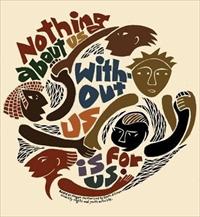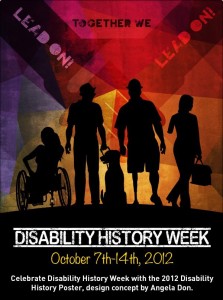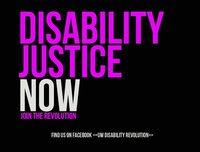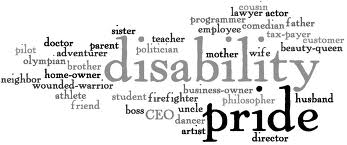Hey, Slavoj Zizek: Deaf People Aren’t Metaphors and Interpreters Aren’t For You
Slavoj Zizek’s The ‘fake’ Mandela memorial interpreter said it all is such a train wreck of a piece that I hardly know where to begin. Somehow, Zizek manages to take an access issue basic to the Deaf community and spin it so completely that I’m left wondering whether he even knows that Deaf people exist.
To begin, Zizek interprets the Deaf community’s outrage at being denied access to the Mandela memorial in such a bizarre manner that it almost beggars belief:
“What lurked behind these concerns was the feeling that Thamsanqa Jantjie’s appearance was a kind of miracle – as if he had popped up from nowhere, or from another dimension of reality. This feeling seemed further confirmed by the repeated assurances from deaf organisations that his signs had no meaning, that they corresponded to no existing sign language, as if to quell the suspicion that, maybe, there was some hidden message delivered through his gestures – what if he was signalling to aliens in an unknown language?”
So, Deaf people protested the lack of access to “quell the suspicion” that some sinister form of communication was going on? And here I thought they were just outraged about a lack of access. I’m not sure how much further toward Othering members of the Deaf community Zizek could go, but …. oh, look! There’s this:
“And this brings us to the crux of the matter: are sign language translators for the deaf really meant for those who cannot hear the spoken word? Are they not much more intended for us – it makes us (who can hear) feel good to see the interpreter, giving us a satisfaction that we are doing the right thing, taking care of the underprivileged and hindered.”
Ah, so now Deaf people are “the underprivileged and hindered” (excuse me while I spit) whose interpreters are not for them, but for people who can hear. Seriously? At about this point, I’m wondering whether Zizek himself is signaling to aliens in a language I don’t understand, because most of us here on planet Earth are pretty sure that sign language interpreters are for people who can’t hear. Could someone quell my concerns, please?
And of course, for Zizek, because the interpreter was only there as window dressing to make hearing people feel deliciously liberal and inclusive, his very presence is nothing but a metaphor for the emptiness of the proceedings altogether:
“And was this also not the truth about the whole of the Mandela memorial ceremony? All the crocodile tears of the dignitaries were a self-congratulatory exercise, and Jangtjie translated them into what they effectively were: nonsense.”
The only nonsense, as far as I can tell, is Zizek’s insistence on speaking for the Deaf community, asserting that intepreters aren’t really for Deaf people, and then making a civil rights issue a metaphor for his political agenda. Perhaps if Mr. Zizek were to be quiet and ponder the issue for a few minutes, he might realize the obvious: that a man who was not a skilled interpreter, and who describes himself as mentally disabled, was unable to avail Deaf people of their civil right to share an event viewed by millions of people all over the world.
The lack of communication access is the issue, Mr. Zizek. The rest, indeed, is nonsense.
References
Zizek, Slavoj. “The ‘fake’ Mandela memorial interpreter said it all.” The Guardian. December 16, 2013. Accessed December 19, 2013. http://www.theguardian.com/commentisfree/2013/dec/16/fake-mandela-memorial-interpreter-schizophrenia-signing?commentpage=1.
© 2013 by Rachel Cohen-Rottenberg







